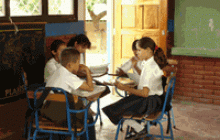Child Friendly Schools Evaluation: Country Report for Nigeria
The Child Friendly Schools initiative in Nigeria was developed as a partnership between the Ministry of Education, UNICEF, and other national and international organizations in response to the dire state of education in Nigeria in the 1990s.
Although there are still some significant areas of concern that have a long-term impact on children’s outcomes, our report found that Nigeria has made substantial progress toward the provision of schools that are child friendly. Most schools made an effort to reach out to enrol all students, including student with disabilities, and there seemed to be a positive attitude toward the provision of education for all. However, very few schools had teachers with training in special education, and most schools lacked resources to meet the special needs of students with disabilities once enrolled.
UNICEF initially contracted with AIR to conduct a global evaluation of its CFS initiative, which sought to create schools that
- reflected and realized the rights of every child;
- implemented student-centered pedagogy;
- were gender sensitive;
- promoted students’ mental and physical health;
- promoted quality learning outcomes for all children;
- enhanced teacher capacity, morale and commitment; and
- provided education that included families and promoted community cohesion.
The evaluation served as a baseline assessment, examining the effectiveness of UNICEF’s CFS programming efforts in the areas of inclusiveness, pedagogy, architecture and services, participation and governance, and systemic management. Nigeria was selected as one of six countries for this global evaluation.
